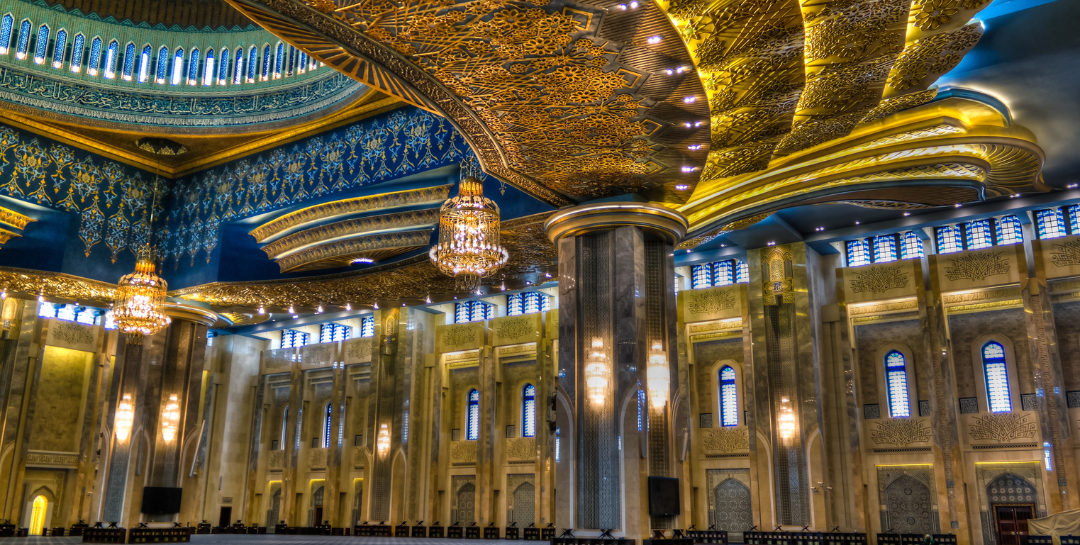Top Banks in Kuwait
Stability and an emphasis on sustainability define Kuwait's banking system.
Stability and an emphasis on sustainability define Kuwait's banking system. One of the sector's characteristics, which has quite a beneficial impact on its development, is significant governmental oversight.

Commercial and Islamic banks both currently provide services in the nation, and an upward trend in the proportion of Islamic banks has been noted.
The nation's banking system was profoundly impacted by the political, social, and economic problems it had to deal with throughout the 20th and 21st centuries.
One of the oldest in the region, the country's banking industry was founded in the middle of the 20th century.
British investors founded the Bank of Kuwait and the Middle East in 1941 based on a 30-year concession, and numerous other financial facilities were built in the following decades.
When the state became independent in 1961, the industry saw significant changes.
The government established Kuwait's Currency Board to manage and develop the national currency.
The country did not have its currency before the 1960s; instead, individuals used Gulf or Indian rupees. The dinar, which is still in use, was adopted by the government in 1960.
The current banking and financial sectors of the economy were established by Law No. 32, passed in 1968. However, the whole banking industry was nationalized in 1971, the year the concession came to an end.

It is important to remember that the country’s banking industry has some stability, even though big crises have impacted its growth. One of the elements influencing the sector's sustainable development is the government's involvement.
Due to internal and external causes, including economic stability in the international market and competent financial and banking sector management, the nation is currently experiencing another period of expansion.
Kuwait's economy
The GDP contracted by 9.9 percent in 2020, a 10.33 percent decline from its prior economic growth rate before the Covid-19 Pandemic, which was 0.43 percent in 2019.

In accordance with a World Bank analysis published in early April 2021, Kuwait's public debt as a percentage of GDP reached 20.3 percent in 2019 and 22.5 percent in 2020, while inflation ranged from 1.1 percent in 2019 to 0.9 percent in 2020.
The United Arab Emirates had a public debt ratio of 25 percent in 2019, Saudi Arabia had a public debt ratio of 32.8%, Qatar had a public debt ratio of 64.1%, Oman had a public debt ratio of 81.2 percent, and Bahrain had a public debt ratio of 132.4 percent, according to the World Bank.
They have a modest but geographically open and affluent economy; its estimated 102 billion barrels of crude oil reserves make up more than 6% of the world's total reserves.
The return to normalcy of the favorable conditions for economic growth, the implementation of public financial management measures to reduce the deficit, and other factors led the World Bank to predict that the economy will experience stable growth in the ensuing years.
The financial and economic reform initiatives are anticipated to be put into place progressively following the "New Kuwait Vision 2035," which aspires to turn the State into a regional and international financial and commercial hub that attracts investment.
The anticipated increase in non-oil sector output as a result of economic diversification
Increased levels of global demand bring on a proportional increase in oil prices.
The World Bank, on the other hand, emphasized the significance of the government's ongoing stimulus program to help economic recovery.
The law addressing the implications and repercussions of the Covid-19 outbreak and delaying loan premiums was passed in March 2021. As a result, many government organizations postponed collecting money from citizens who owed them money.

Their economy may encounter difficulties recovering because of the regular and appropriate access to a supply of vaccines produced regularly. Large oil stock demand worldwide is still a factor in the declining growth prospects of oil-exporting nations in the Gulf.
Growth prospects may also be threatened by the pandemic's prolonged negative economic effects on employment, incomes, and growth.
Top Banks in Kuwait
Some of the major banks in the country are:
1. National Bank of Kuwait|| NBK
Total Assets: KWD 31 Billion| 2021
NBK is the first local bank operating in the gulf, founded in 1951.
The bank does business through its segments for corporate banking, Islamic banking, group center, and international, as well as consumer and private banking, investment banking, and asset management. Its main office is in the capital city.

Total Assets: KWD 21.22 Billion| 2021
As the first bank operating under Islamic Sharia regulations, KFH was founded in 1977.
KFH is traded on the Kuwait Stock Exchange (KSE), where as of May 2016, it had a market value of $8.2 billion (KWD 2.49 billion). Deposits total $34.97 billion, and assets come to $55.52 billion (KWD 16.83 billion) (KWD 10.66 billion.)
Total Assets: KWD 6.90 Billion| 2021
Burgan Bank has multiple subsidiaries that operate under different names scattered in the MENA region.
These subsidiaries, collectively known as the "Burgan Bank Group," include the fully owned Burgan Bank in Turkey, Bank of Baghdad in Iraq and Lebanon, Tunis International Bank in Tunisia, and Gulf Bank Algeria in Algeria.
Burgan Bank is additionally present in the UAE thanks to its corporate office ("Burgan Financial Services Limited"), which has aided the bank in taking part in numerous financing opportunities there.

The bank has worked constantly to achieve its growth over the past years by focusing on solid risk management across the group, sustaining cautious expansion in the bank's major markets, managing franchises by boosting operational efficiencies and returns, and optimizing capital allocation.
The bank received the coveted ISO 9001:2015 certification again, making it one of the few banks in the country and the GCC to do so for the fifth time in a row.
Total Assets: KWD 6.77 Billion| 2021
Kuwait-based Boubyan Bank is a well-known Islamic bank famous for its superior customer service and commitment to innovation.
According to the guidelines of the Noble Islamic Sharia, Boubyan offers services for retail banking, business banking, and wealth management.
Four entities that provide banking, asset management, takaful insurance, and property management services make up the Banking group.

The exclusive and distinctive financial services and goods Boubyan Bank offers were first available in the country’s market.
Concerning customer service, the bank is recognized as the top private sector organization.
Furthermore, Boubyan Bank's business strategy has always been built on creativity and innovation. The bank is committed to promoting this value through its cutting-edge digital and electronic banking services, most of which are being made available for the first time.
Total Assets: KWD 6.27 Billion| 2021
When The Amir issued Amiri Decree No. (44) establishing Gulf Bank as a shareholder business, Gulf Bank was officially founded on November 23, 1960.
Twelve businessmen founded Gulf Bank, which has subsequently expanded to rank among the biggest financial organizations in the country.
The Gulf Bank Head Office, with nine above-ground stories and two in the basement, was designed by Delb.

Pre-molded concrete components that shape the building's exterior and lessen its exposure to sunlight by shading the offices inside are among the key design components.
The layout uses the rectangular shape of the property and is centered on a triple-height hall that serves as the main area for customer reception.
6. Commercial Bank of Kuwait|| CBK
Total Assets: KWD 4.87 Billion| 2021
One of the leading financial institutions, CBK offers cutting-edge financial and investment solutions to its steadily expanding customer base through a strong and expanding retail and corporate banking franchise.
CBK is the second-oldest bank, founded on June 19, 1960.
CBK is leveraging its significant capital base and decades of experience to assume a leading economic position, from retail banking to mega-project finance.
The bank has emerged as Kuwait's primary financier, organizing a steady flow of loans for various infrastructure, building, and power projects.
Total Assets: KWD 4.30 Billion| 2021
Al Ahli Bank (ABK) has grown since its founding in 1967 to become one of the top banks in the area, offering a broad range of banking and financial services and products throughout all of its markets in Kuwait, Egypt, and the United Arab Emirates.

ABK has 29 strategically placed locations in the country, its home market, two full-service branches in Abu Dhabi and Dubai, and a commercial banking branch in the UAE. There are 44 branches in total.
Strategic partnerships with top-tier financial partners have also resulted from ABK's long-term regional ambitions.
The bank still has excellent credit agency ratings, including an A2 from Moody's and an A+ from Fitch.
8. Kuwait International Bank|| KIB
Total Assets: KWD 2.81 Billion| 2021
It was founded in 1973 as one of the Islamic banks. A publicly traded firm called KIB is a bank that began operating in accordance with Islamic Shari'ah on July 1, 2007.
Finance and corporate initiatives, letters of credit and guarantee issuance, real estate transactions, and property management are all examples of Treasury Services.

The bank offers several banking services, including credit cards, direct investments, financing transactions, and deposit-taking.
9. Industrial Bank of Kuwait|| IBK
Total Assets: KWD 685 Million| 2021
The bank was founded in collaboration with significant entities from the business sector.
The Ministry of Finance and the Central Bank of Kuwait served as the government's representatives, and a number of its businesses in the banking, manufacturing, and investment sectors served as the representatives of the private institutions.

Kuwait made significant strides in promoting industrial activity and bolstering the infrastructure of this crucial sector with the founding of IBK, which had an initial capital of 10 million KWD.
The GCC's first specialized bank to support and finance industrial development was IBK.




or Want to Sign up with your social account?